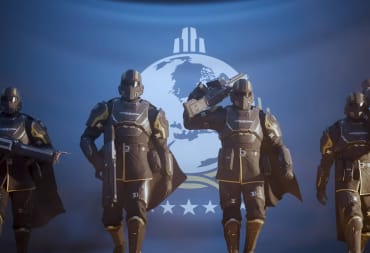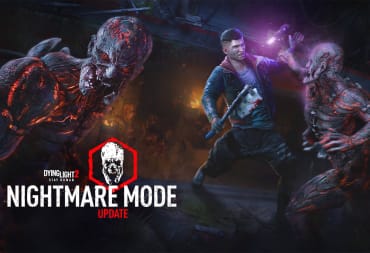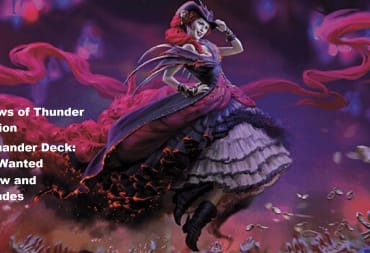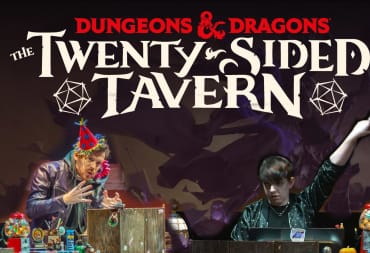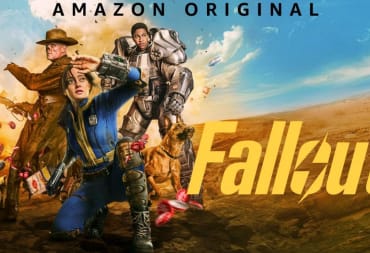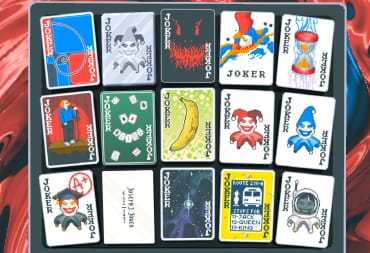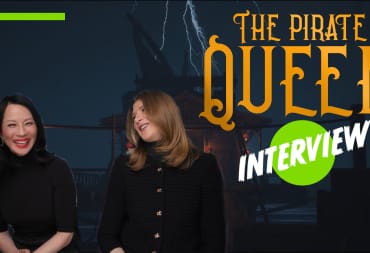There is a lot of chatter surrounding Far Cry 5. The strong review scores, including in our own Far Cry 5 review have been followed by a smattering of critique over its flaws, criticisms of the apparent “toothless story” and, most recently, a critique of the narrative sins the game commits.
It is interesting to see the hot takes on Far Cry 5 run the gamut of praise to disappointment, even though the biggest change of all this time around is the strength of the game's subtext.
Note: The following will contain spoilers for the game.
Seeing a game use every visual and audio trick in its arsenal in conjunction with the game's controls is rare in the days of loot boxes and live services. Ever increasingly a lost art, if there is one thing Far Cry 5 does well (provided you pay attention), it is how it enhances its narrative through these context clues. From it, we go beyond just a simple action romp in Hope County Montana to an allegorical fable that fulfills the mandates of what the development team likely intended: the hopelessness found in fighting for freedom.
An interview with director Dan Hay discussed this theme in detail, and upon reflection, it fits into the narrative framework of Far Cry 5 beautifully:
"I really like the idea of flipping the coin and going, this is somebody who on a regular note everybody would look at and say this person’s crazy but they’re looking at you and saying 'I know you think I’m crazy but what if I’m right?'"
Hay discusses how the Cold War was a time of powerlessness, lack of hope, and the threat of death around the corner for him, but its end brought relief for a time, until recently when that feeling that something was wrong crept back into his thoughts:
"It was just a remembrance of the feeling when I was a kid, so you take all that information and jam it into the brain of The Father who says 'look, it’s not a commentary on America, it’s a commentary on the world. We’ve been so close to the end of times so many times that we’ve been desensitized to it.' His point is that one time it’s going to happen. And when it does 'I’m going to survive it and so are you. I’m going to take you whether you want to be saved or not and two or three weeks after it happens you’re going to turn to me and say "thank you.'"
That was an interesting way to think about it."
Far Cry 5's charismatic villain, the fanatical Father Joseph Seed of Eden’s Gate, fits this role fully, and per Hay’s vision, the game's entire being reflects that simple charge that is all too sinister for us: “What if he was right all along?”
Some of the charm of Far Cry 5 is how it tackles extremities in the face of divisiveness. The setting is perfect to demonstrate this. Rural Montana is as exotic of a location as you can find in the mainland United States. Sparsely populated and filled with savage beauty, it continues the trend of Far Cry games providing beautiful locales for its players. For many, Montana is a temporary getaway from urban life for a short excursion into the unknown. For others, it is an exaggerated portrait of their lifestyles and sensibilities.
Some of the criticism thrown at Far Cry 5 has been the lack of a political stance on the game. Yet, the game is perhaps one of the most politically sound ever done by Ubisoft, mostly because of how it presents extreme ideology. The Cult of Eden’s Gate is as fanatical as it comes as an ideological framework, but the Resistance movement, the denizens of Hope County, represent a more varied form of ideological beliefs that often reflect the extremities of the ideology thrown at them.
Part of this is how Ubisoft treats the characters of Far Cry 5 through extreme personalities. The world itself is populated by conservative stereotypes with conservative values, and for some, the fact that the game doesn’t tackle contemporary political divisions misses the point of their representation. The caricature of rural conservatives as fanatical “preppers” clinging to their guns as a safety blanket is strong for both gameplay reasons (prepper stashes and tons of guns in a first-person shooter) and through real-life sensibilities that have shaped how we view issues, such as gun ownership in a time where the U.S is currently grappling with the prospect of gun reform.
It is a problem that needs addressing regardless of our beliefs, and the recent movements for reform to gun laws in the U.S. have become a political hot potato that is hard to ignore. But, a game like Far Cry 5 thrives on the use of guns in its gameplay, so it is disingenuous to say the game is pro or anti-gun in a political sense. What the game does achieve, however, is showcasing the malignant uses of guns as the tools they are on both sides.
The subtext, however, is not the number of guns in the game, it is how the sides act between each other in the war that shapes Hope County. The Cult of Eden’s Gate is straightforward; the signs of the apocalypse have been seen by Seed, commanding his flock to take what they need and save as many as possible from the impending doom he so desperately believes. The use of violence, torture, propaganda, and drugs all coalesce to the extreme actions of The Father and his own family, the heralds of Eden’s Gate.
Each member of the Seed family represents the extremes of these ideals. We see the unhinged depravity of John Seed, a psychotic torturer who uses empty platitudes to have you confess your sins. Proclaiming the power of yes to all, is a pseudoscientific secret as he grafts your sins on your skin before ripping the flesh from your body.
Faith Seed’s manipulation through narcotics, providing ignorance through the aptly named drug Bliss creates a falsehood of security and a lack of free will for those who succumb to their effects. The fear of the real world behind the misty Garden of Eden she creates is an obsession with her own failings and confusion.
Jacob Seed, the only herald who seems to be skeptical of Joseph's prophecy, is perhaps the most chilling because he is the most pragmatic. His calls to cull the herd, promoting the strong over the weak, preparing like the preppers all over the county for the inevitable end are taken to its extreme form of survival of the fittest. Jacob is expecting a breakdown of order not because of his brother’s words, but because of the world's actions.
His entire section is also one of the more unique aspects of the game, where he uses classical conditioning (using the 1950s crooner song “Only You”) to transform the deputy into his own tool of destruction.
All three of the heralds are twisted in their own forms, but in a subtler way, they mirror how extreme the Resistance can be when caving to their tactics. We see cultists waterboarded by Tammy, a housewife turned freedom fighter in the Whitetail Militia. The same militia calls to hang every cultist to a tree after the death of their leader Eli by the hands of Jacob Seed’s conditioning on the player.
The player and members of the Resistance are relatively uncaring about the use of drugs and homemade homeopathy to give them an edge in combat, even sending the deputy to meet a teenage tweaker to help improve some of their formulas for you. We even see many members of the Resistance push hard against the “Peggies,” a pejorative term that wholly dehumanizes the enemy ten-fold, transforming them into a faceless enemy to kill without consequence.
Only one character, holy man Pastor Jerome, is willing to extend himself to help his enemy, tasking the player with a singular mission to help protect a defector from the cult to the Resistance. Jerome humanizes the cult, justifying his own actions in the violence as a complex form of retribution to protect his flock from the sweet sounds of the devil in their ear. He is a foil to Joseph Seed, with a quieter charisma resonating from his Catholic faith and bible quoting verses in the heat of combat.
Like Seed, he is not afraid to get his hands dirty for his own convictions, and he shows compassion and care for those around him. Yet, Father Jerome is the exception to the rule for the good guys; in all other cases, the Resistance positions the cult of Eden’s Gate as a faceless enemy all the while apathetic to their war crimes.
It’s jarring, to say the least. From a player’s perspective, it's acceptable due to one single-minded issue: this Resistance, coming from all walks of life and all political points of view, is the “good guy” in a war that threatens the one thing every member has in common: freedom. It is the singular aspect of the plot that resonates through the entire Resistance; the cult threatens the freedom of choice, of thought, of rights, and desires.
The Resistance, in the end, is just a mirror of the cult in all but that desire for freedom; after all, the cult places little value on freedom since its leader does everything in its power to control them through ideology.
But going back to Dan Hay’s words, something is off with the world. The question of freedom is always present, but when addressed, it is often dismissed by the villains as a weakness that holds us back. John argues we truly aren’t free until we say yes; Faith offers us freedom through the lulling tactics of the Bliss; and Jacob flatly believes there is no freedom at all, only a sacrifice we need to make to survive.
Joseph too rejects freedom for divine provenance, but to him, the cost of that freedom is already paid through the death of his wife and the murder of his infant daughter, leading to his fanatical devotion to his visions of prophecy. Joseph isn’t free; he is a tool to fate, and he intends to act instead of being idle.
So, does freedom grant us the ability to do what we must or are we ultimately not free in our actions? Far Cry 5 does explore this through the arc with Jacob Seed. Think of the now classic reveal of the trigger phrase in BioShock, the charismatic performance of Armin Shimerman as the Randian super-objectivist Andrew Ryan as he wrestles total control from the hands of the player in a brief, memorable moment.
Jacob stretches that out further, forcing the player through gameplay to carry out his deeds. Far Cry has a long history as a series of being cinematic not through choice but set piece and spectacle. It is separate from the choices in gameplay, save a prompt here and there where you are forced to choose an action. Far Cry 5 is the first time where we see the narrative married to gameplay through actions in a way that is satisfying from a gameplay and narrative point of view.
Ultimately though, it is Joseph Seed’s certainty that the collapse is upon them that leads to the further cleansing of Hope County. Fate had decreed you as the harbinger of doom, but while the war of Hope County rages, real-world politics play out in Far Cry 5 as a throwaway detail.
The odd radio stations discussing a code-red situation in the White House. An ominous report of Moscow being bombed to oblivion. Jacob Seed rightfully points out the hubris of humanity as it is thrown into crisis after crisis. “It doesn’t matter what we build or achieve,” he says as he sits dying. “We will always find a way to break it down.”
True belief in a cause and blind fanaticism over free will often go together, but for Joseph Seed, his family, and his flock, is true belief twisted to its extreme. Yet, even when presented with the choice to end it all at the final confrontation with Seed, that feeling of unease, the subtext of what we fight for, is ultimately our undoing. Seed, for all his fanatical beliefs, was right all along: the collapse is at hand.
Far Cry as a series is often ambiguous when it comes to its endings, but for the first time in the series' history, every single ending ends with Seed “winning” against the player. The walkaway ending has the player forgiven by Seed, averting the final sign of the collapse and forcing the player and his fellow law officers to retreat before the familiar lyrics of “Only You” blast through the car radio, the deputy's vision going red as Jacob’s conditioning kicks in.
The resist ending is bleaker; Seed and the Deputy are trapped in the large bunker, the only survivors of three nuclear bombs dropped in Montana. Proclaiming the player to be the son, The Father once more takes control, waiting for the moment to march on Eden’s Gate as more bombs fall and the world ends.
When put into the vision of Hay’s context as to how off-kilter the world is, the cost of freedom was ultimately the world's undoing. The game is coy at keeping the ending somewhat ambiguous (it’s never stated if it was war, a drug hallucination, or Seed himself setting off the bombs) but it doesn’t matter in the context of who or even why it happened. Hay gets his moment lived through a complex, even somewhat sympathetic villain who reflects the innermost depravity of contemporary society, yet uses them to try to save humanity from itself in a forceful, ideologically charged way.
Far Cry 5 posits that freedom is ultimately powerless to stop fate, beholden to its grasp with Joseph Seed at the center of it all. It is a dark, yet painfully truthful message to say freedom regardless of cost will not always lead to success or happiness. The world is ultimately as wild and unpredictable as the vast landscapes of the Far Cry series try to emulate. Perhaps that is the point in the end; that we over-value our freedom, as it can easily be taken away by powers beyond our control. Perhaps the ultimate fate of freedom is the total loss of our world and our way of life if we aren't careful of the dangers of the world around us.
One thing is for sure, Joseph Seed said God wouldn't let him be taken, and he was right about that too.
This post was originally published in 2018 as a part of our Character Select series. It's been republished to have better formatting.
Have a tip, or want to point out something we missed? Leave a Comment or e-mail us at tips@techraptor.net




